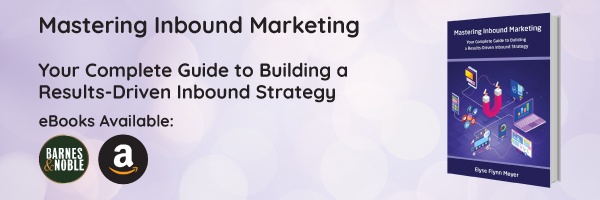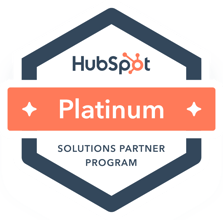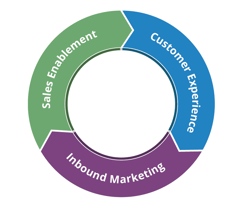Your inbound marketing strategy isn’t about marketing your business just for the sake of marketing. It’s far more than that. It’s about generating qualified leads for your sales team to drive revenue and customer growth. Your inbound marketing strategy needs to be continually measured against your goals to see how your inbound program is performing and how it can be improved. To make sure that your inbound marketing program is set up for success, you need to precisely identify what you want to achieve, and when you need to see those results.
Start with setting the marketing objectives that your team wants to achieve during a certain period of time. Your marketing objectives are defined as metrics or numbers that serve as your end goal. When setting marketing goals, you should always focus on a precise metric, so the metric is objective instead of subjective. This will ensure your performance is based on that specific metric. Once you have determined the defined metrics you want to hit, you need to be specific about how you will get there by setting micro-goals that make up the larger objective.
How to Set Inbound Goals:
Your inbound goals need to be SMART, which means Specific, Measurable, Attainable, Relevant, and Time-bound. What do SMART goals mean to you?
- Specific: Choose specific metrics you want to improve, such as increased website visitors, subscribers, marketing qualified leads, or customers.
- Measurable: Quantify your goals, such as achieving a specific percentage increase in visitors, subscribers, leads, or customers over a specific period of time.
- Attainable: Ensure that your goals are realistic. Look at your past numbers to determine that the baseline goal you are setting is achievable, but will still require a strategic shift in marketing and sales to reach that goal.
- Relevant: Your marketing goals need to be relevant to your organization’s overall business goals. Ensure that if your organization’s goal is to increase revenue, you align your marketing goal to capture more sales qualified leads for your sales team. This is where marketing and sales alignment intersect.
- Time-bound: Set a deadline for meeting your metrics. Start with analyzing monthly metrics, so you know how you are tracking toward your goal. Then you can move to broader quarterly or annual goals once you have a better understanding of your baseline and your areas for improvement.
Practical Application:
A professional services firm was initially seeing an 8% increase in leads month over month. They knew that having more contacts in their database reading and sharing their content drove more qualified prospects to reach out to the firm for a consultation and enter their sales pipeline. Therefore, one of their SMART goals was to increase their new leads by 10% - 12% over three months by generating top-of-the-funnel content that generated new conversions on their website. This is an example of a goal that was Specific, Measurable, Attainable, Relevant, and Time-bound.
Setting realistic inbound marketing goals will help identify what you want to achieve, and when you need to see those results in order for your marketing program to be considered successful. This starts with making sure you're leveraging SMART goals so you have a clear indication that your goals are always Specific, Measureable, Attainable, Relevant, and Time-Bound.
Are you looking for ways to optimize your inbound strategy? The book "Mastering Inbound Marketing: Your Complete Guide to Building a Results-Driven Inbound Strategy," written by Elyse Flynn Meyer, Owner & Founder of Prism Global Marketing Solutions, covers every aspect of the inbound marketing methodology, including the revenue generation trifecta of marketing, sales, and the customer experience. Check out the book to see how to most efficiently and effectively develop, implement, and maintain your inbound marketing strategy.







.png?width=250&name=diamond-badge-color%20(1).png)
